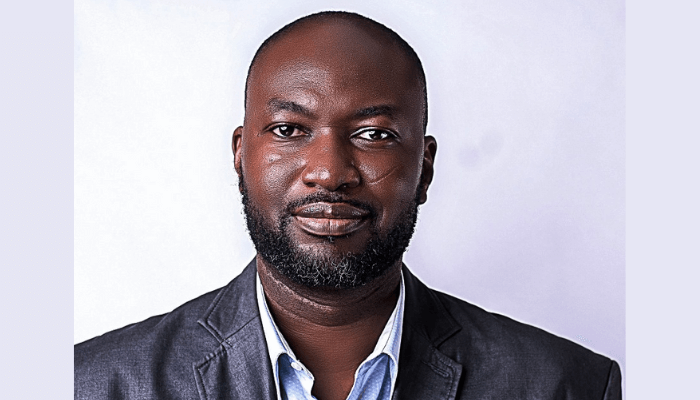Since its establishment in 1975, the Economic Communities of West African Countries (ECOWAS) have been the basis for fostering regional integration, trade, political cooperation and economic growth. But the Bullock is now facing its most serious crisis. The departures of Mali, Burkina Faso and Niger (the three Sahel provinces ruled by the junta) announced their withdrawal in January 2025. The move will break West Africa's economic unity, weaken collective bargaining power, and threaten the anti-West General Assembly of Embl. The impact on ECOWAS is profound, from trade disruptions to declining impacts on global markets.
Why did the Sahel leave?
The three countries ruled by the junta that took power in a coup between 2020 and 2023 have grown increasingly disillusioned with ECOWAS. The Bullock had imposed sanctions on them for their undemocratic acquisitions, trade restrictions and frozen financial assets. Rather than putting pressure on Juntas, he accused Ekovas of being a Western powerhouse, particularly a puppet of France, and sought close ties with Russia's Wagner Group and other alternative allies.
Also Read: Ecowas, To tackle weapon multiplication with unidir raunch raunch raunn in senegal
Their exit follows a broader trend in anti-Western sentiment in the Sahel. The Sahel's continued unrest, economic stagnation, and frustration over perceived neocolonialism have driven a shift towards Moscow and Beijing. By leaving ECOWAS, the trio has demonstrated their rejection and acceptance of the Sahel State (AES) alliance, a new mutual defense agreement established in September 2023. AES is more than just a security arrangement.
ECOWAS Economic Fallout
1. Trade turmoil and lost markets
ECOWAS is designed to promote the free movement of goods, services and people in West Africa. The departures in Mali, Burkina Faso and Niger account for around 15% of ECOWAS's GDP, but are disrupting cross-border commerce.
• Decline in intra-regional trade: These landlocked countries rely on coastal neighbours such as Nigeria, Ivory Coast and Ghana for imports and exports. According to the Nigerian Bureau of Statistics (NBS), the Republic of Niger alone imported 25.9 billion Nigerian goods in the fourth quarter of 2024, with Burkina Faso winning 5.8 billion. As trade barriers rise, smuggling could increase. This is because illegal border trade between Nigeria and Niger accounts for 2% to 3.5% of Nigeria's GDP.
– Energy and Food Security Risks: Niger supplies uranium and agricultural products, while Mali and Burkina Faso contribute to local food production. A supply chain breakdown can inflam any existing shortages.
“The Sahel withdrawal is more than a political rift. It's an economic earthquake.”
2. The weakening of potential customers in currency associations
ECOWAS has been aiming to introduce ECO, a single currency comparable to the CFA franc. This is the currency still in use by the state of AES, and is fixed to the euro via the French Ministry of Finance. The three-member exit, especially the exit from Niger, an economic lynchpin, was able to delay or derail this plan. Investor confidence in the region can complicate monetary policy adjustments and decline.
3. Security Costs and Migration Pressure
The Sahel is the epicenter of the West African jihadist rebellion. Ekowas supported the now-abolized G5 Sahelforth after Burkina Faso and Niger retreated. Without adjustments, security gaps could widen, like this:
• Increased military spending: Neighboring states may need to strengthen border security and divert funds from development.
• Refugee flow: Escalation of violence could push more migrants into coastal states and strain resources.
4. Geopolitical Change: Russia and China fill the blank
Sahel Juntas already deepens ties with Moscow, providing mercenaries and weapons in exchange for mining rights for gold, uranium and other resources. China is also expanding its footprint through infrastructure loans. If ECOWAS fails to reintegrate these states, it risks losing its influence on the power of its rivals, making it difficult to negotiate favorable terms of trade with the EU or the US
AES' dangerous economic gambling
The newly formed Sahel (AES) seeks to assert economic independence by:
– We will introduce a general passport to replace ECOWAS travel documents.
-The movement aims to impose a 0.5% tax on imports other than AES and fund the union, but this movement could backfire given the chronic trade hindrance.
– Promote local production, but now they lack an industrial base to replace imports.
However, AES faces serious structural weaknesses.
– Low Human Development Index (HDI) scores (all below 0.5).
– Reliance on foreign goods with no immediate replacements.
• Economic instability due to sanctions and declines in ECOWAS trade.
Also Read: ECOWAS Bank Approves 230 Million EUR to Strengthen West Africa's Infrastructure
Will Ecowas survive this blow?
Block is not destined. Nigeria, Ivory Coast and Senegal remain economically heavyweights, but their reliability is at stake. To mitigate damage, Ecowas looks like this:
– Offering concessions: Relaxing sanctions in exchange for a return to democratic governance could bring back the junta.
• Strengthening relationships with the remaining members: Accelerating eco-currency or improving infrastructure links could enhance unification.
• Involvement of alternative partners: Expanding trade with Morocco or Mauritania could offset lost markets.
But if more countries follow the Sahel lead, Ekova can be fully elucidated, although Guinea and Chad look closely. Over the next few months, we will be testing whether West African economic communities can adapt or succumb to fragmentation.
Conclusion: intersection area
The Sahel withdrawal is more than a political rift, it is an economic earthquake. ECOWAS needs to navigate the fractured landscape in the flux of trade, security and monetary policy. If it cannot reaffirm its relevance, the bloc may stand by itself in an area increasingly shaped by Russian mercenaries, Chinese loans and military control. For West Africa, the cost of non-membership can be decades of stunting and instability.
The current question is whether ECOWAS can reform enough to prevent further withdrawal, or whether the Sahel escape marks the beginning of the end of West Africa's most ambitious economic coalition.
Dr. Oluyemi Adeosun is the Chief Economist of Businessday.



